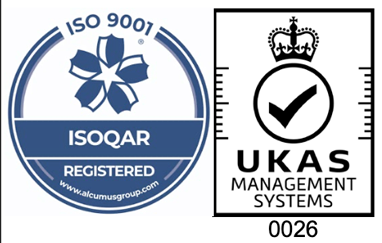The Role of Rubber Manufacturing in the UK’s Sustainable Future
29th August, 2023
The rubber industry has had both steady and rapid growth over the years, but as sustainability becomes more and more important in everyday life, such major resource-based industries must reevaluate their positions within the broader economy.
On a planet that’s quickly running out of natural resources, rubber manufacturers need to look to promote not only sustainable rubber production, but efficient use of naturally occurring materials too.
In this article, we explore the pivotal role of rubber manufacturing in promoting sustainability in the UK.
The Ubiquity of Rubber Products
Numerous sectors use rubber, a flexible material appreciated for its elasticity, toughness, and tolerance to numerous environmental variables. Rubber products are indispensable in everything from tyres and hoses for the automotive industry to seals and gaskets for the construction sector and even in vital medical supplies like gloves and tubing. This widespread application highlights the significance of environmentally friendly rubber production in ensuring that these sectors have the least possible negative environmental and carbon footprints.
Recycling
Recycling has emerged as a pivotal practice in sustainable rubber manufacturing. By reclaiming and repurposing rubber materials from discarded products, manufacturers significantly reduce the strain on natural resources. Innovative techniques like cryogenic grinding and pyrolysis are being employed to break down rubber waste into reusable components, further driving the circular economy.
The most common type of rubber recycling is tyre recycling. For years, discarded tyres were sent to landfill, where they took up valuable space and released toxins into the surrounding environment. However, tyres are reinforced with carbon black, which – when burned during a recycling process known as pyrolysis – produces a low-grade rubber bi-product known as ‘char’. Char has little to no usable value, and can be harmful to the environment.
Modern pyrolysis is a fairly efficient recycling method, although there have been concerns raised about the danger of incomplete combustion, and toxins released into the atmosphere as gases.
A newer, more complex method of recycling rubber is devulcanization.
Devulcanization
Devulcanization is a process that breaks down vulcanized rubber products to their original state, allowing them to be reused or recycled. When natural rubber is produced, it is vulcanized. This process combines the rubber with a number of additional elements which change its properties so that it is more durable and elastic.
This method not only reduces the demand for virgin rubber but also diverts rubber waste from landfills and incinerators.
Paving the Sustainable Path Ahead
It cannot be overstated how important rubber production is to UK sustainability goals. Rubber product production has a significant environmental impact due to the vast range of sectors in which it is used.
Rubber product manufacturing has a significant environmental impact due to the vast range of sectors in which it is used. The UK rubber manufacturing industry is promoting itself as a driver of sustainability by embracing devulcanization and recycling together with energy-efficient manufacturing techniques and waste reduction initiatives.
People are starting to pay attention as major corporations like Michelin continue to advocate for sustainable rubber production. In an effort to make the planet greener, Timberland uses recycled tyres in the soles of their shoes; this shows their consumers and colleagues that they share a concern for the environment.
The UK’s dedication to environmentally responsible rubber manufacture acts as a role model for other nations and industries as the push for eco-aware practises is becoming more urgent. By encouraging cooperation among producers, decision-makers, and consumers, the country is not only reducing its ecological impact but also paving the way for a time when rubber products will be essential to a circular and sustainable economy.
Get in touch
Interested in how Aquaseal Rubber are working towards a greener planet? Maybe you want to discuss a sustainable rubber project, or you have an idea that could revolutionise the way we work. Give us a call on 0191 266 0934 or contact us. We look forward to working with you.


